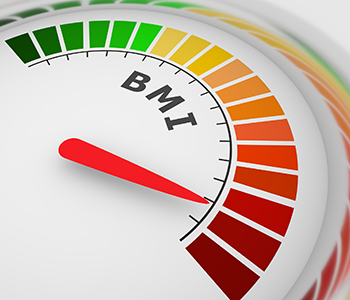Uc Davis Health System issued the following announcement on Nov 25.
A national group of researchers, led by a UC Davis Health team, has found that obesity can block the benefits of a stem cell transplant when it is used for treating blood cancers and other related disorders.
UC Davis Health researchers found cancer patients with a high body mass index (BMI) fared poorly with stem cell therapies for blood-related disorders.
The study examined what happens when stem cells from a healthy donor are transferred to an obese recipient after first conditioning with chemotherapy or radiation. The treatment is known as allogenic hematopoietic stem cell transplantation (allo-HSCT).
The group included clinical researchers from the Masonic Cancer Center at the University of Minnesota and the Tisch Cancer Institute at New York’s Mt. Sinai. They used both mouse models and clinical data from human HSCT patients to examine the impact of obesity.
The researchers determined that obesity prompted serious complications, including increased inflammation and damage to the gastrointestinal system. The resulting problem, acute graft-versus-host disease (GVHD), reduced survival rates in both obese mice and humans.
The findings were published online today in Science Translational Medicine.
“What we found in obese mice and patients with a body mass index greater than 30 is that obesity had a net negative effect on the success of allo-HSCT treatments because of the increase in complications from gut inflammation,” said William Murphy, professor of dermatology and internal medicine at UC Davis Health and principle investigator on the study. “Our findings suggest that obesity predisposes recipients to a ‘cytokine storm,’ or severe inflammation, after the transplant that makes the GVHD worse.”
Murphy and his colleagues observed that obesity markedly changed the gut microbiota (the “healthy gut” bacteria) in both the study mice and clinical subjects. Giving antibiotics to the obese mice could prevent some of the damage.
“We were surprised in this case that it was completely limited to acute GVHD of the gastrointestinal tract,” said Murphy. “Usually, other organs such as the liver, skin and lungs are affected. We realized this could be due to a ‘leaky gut’ reported to occur in obesity that was made worse by prior conditioning used in HSCT. However, it is important to note that while some patterns were observed regarding the particular microbiota associated with the poor outcome, this is a very incomplete picture at this time, and more work is needed to determine exact mechanisms of action before extrapolating clinically.”
While allo-HSCT has long been successful in treating blood cancers such leukemia, lymphoma and myelomas, it often involves high-intensity conditioning involving chemotherapy, radiation, or both. It is used to keep the body from rejecting the donated cells, but can cause major toxicities in the body. Unfortunately, it also can lead to GVHD, in which donor immune cells attack not only the cancer but the recipient’s organs as well. The toxicity problem represents a major hurdle, not only for HSCT, but also when such approaches are applied in other types of cancer treatments known as immunotherapies.
The researchers were surprised at how much obesity affected outcome, but only in the gut. In the preclinical mouse models, it was very rapid and serious.
“The severe immune responses we observed with GVHD and obesity parallel the effects we know about in other human immune responses involving a high body-mass index,” said Murphy. “Whether it’s an acute viral infection like COVID-19, a life-threatening condition like sepsis, or even with some strong immunotherapy treatments, obesity can threaten what otherwise could be a good outcome due to the meta-inflammatory conditions it induces. Our results indicate that the altered microbiome may be a contributing factor and it is worth pursuing in further studies.”
The study notes that despite the nation’s widespread obesity problem, its effect on various immune and disease processes remains poorly understood. There are likely multiple factors – such as the extent of fat deposits, how long obesity was present, the type of diet, and even the different types of conditioning used in HSCT – that need to be explored before the acute problems for obese patients undergoing specialized blood cancer treatments are more fully known.
In addition to Murphy, other study authors included Lam T. Khuat, Catherine T. Le, Chien-Chun Steven Pai, Robin R. Shields-Cutler, Shernan G. Holtan, Armin Rashidi, Sarah L. Parker, Dan Knight, Jesus I. Luna, Cordelia Dunai, Ziming Wang, Ian R. Sturgill, Kevin Stoffel, Alexander A. Merleev, Shyam K. More, Emanual Maverakis, Helen Raybould, Mingyi Chen, Robert J. Canter, Arta M. Monjazeb, Maneesh Dave, James L. M. Ferrara, John E. Levine, Dan L. Longo, Mehrdad Abedi, and Bruce R. Blazar.
The study was funded by grants from the National Institutes of Health, UC Davis Comprehensive Cancer Center and the UC Davis Mouse Metabolic Phenotyping Center.
Original source can be found here.

Source: Uc Davis Health System


 Alerts Sign-up
Alerts Sign-up